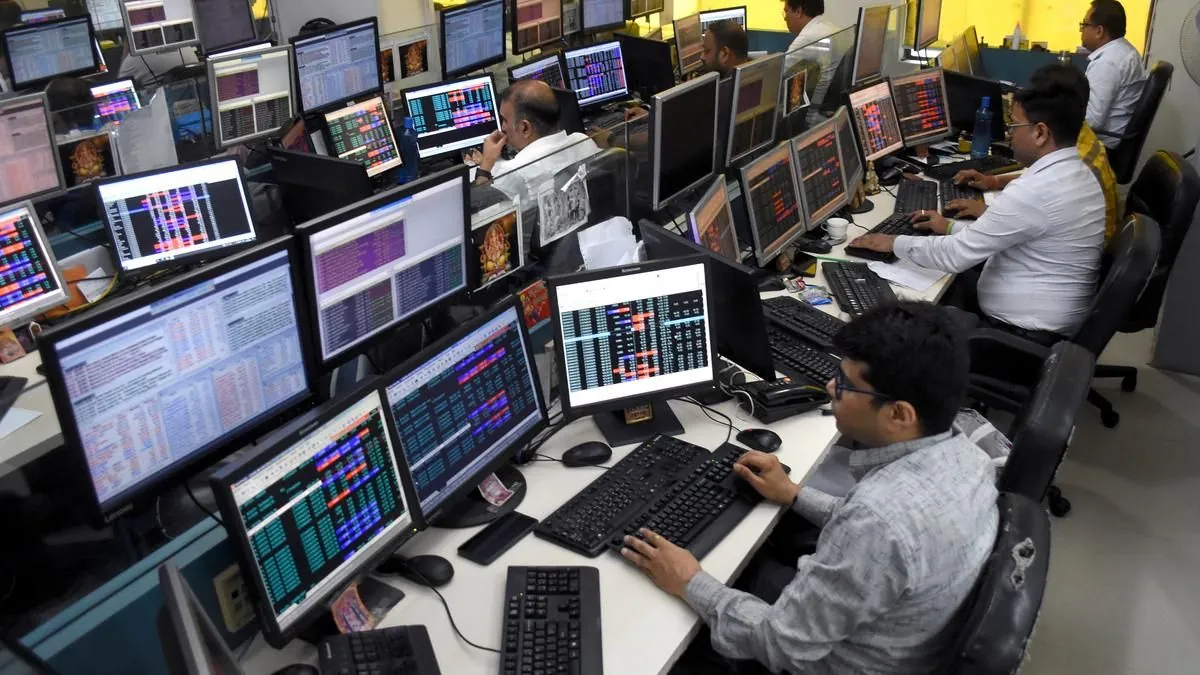Indian Shares Poised for Rebound Amid Global Tensions and Corporate Updates
Indian stock market set to recover after sharp decline, with focus on Bajaj Finance's growth. Investors navigate geopolitical tensions and record foreign outflows while eyeing corporate performance.

Indian equities are anticipated to open on a positive note on October 4, 2024, as investors look to capitalize on the previous day's market dip. This comes after the NSE Nifty 50 and S&P BSE Sensex experienced their most significant percentage declines since August 2024, reflecting ongoing investor caution amid escalating Middle East tensions and substantial foreign capital outflows.
The GIFT Nifty, trading at 25,431.5 points as of 7:47 a.m. IST, suggests that the NSE Nifty 50 will likely commence trading above its prior close of 25,250.10. This indicator from India's first operational smart city and international financial services center, GIFT City, provides a glimpse into market sentiment.
Global markets have been on edge following Iran's ballistic missile attack on Israel earlier this week, raising concerns about potential disruptions to oil supplies from the Middle East, a region crucial to global crude production. As a result, oil prices have surged while global equities have retreated.

Despite the geopolitical uncertainties keeping investors vigilant, market participants are expected to engage in dip-buying strategies, a common approach during market downturns. This sentiment comes as the Indian stock market, one of the world's fastest-growing, continues to demonstrate resilience in the face of global challenges.
Foreign Institutional Investors (FIIs), who play a pivotal role in Indian financial markets, offloaded a record 152.43 billion rupees ($1.82 billion) worth of stocks on October 3, 2024. This brings the total outflows to $3.65 billion over three sessions, highlighting the significant impact of global events on capital flows.
Analysts suggest that the recent outflows from Indian equities might persist in the near term, as investor attention shifts towards China. The world's second-largest economy has recently unveiled stimulus measures to bolster its economic growth, potentially attracting global investment capital.
In the corporate sphere, Bajaj Finance, one of India's largest non-banking financial companies, reported a 14% year-on-year loan growth for the second quarter of the fiscal year. This performance will likely be a focal point for investors assessing the health of India's financial sector.
Other notable corporate updates include:
- Bajaj Housing Finance announced a 26% increase in its Assets Under Management (AUM) for the September quarter.
- Shilpa Medicare's subsidiary received a certificate of suitability from the European drug regulator for a diabetes medication, showcasing the strength of India's pharmaceutical industry.
- Bank of Baroda, a major public sector bank, reported a 12% rise in domestic advances and a 7.1% increase in domestic deposits for the September quarter.
- Avenue Supermarts, which operates the DMart chain of hypermarkets, posted a 14% standalone revenue growth in the same period.
These corporate performances provide insight into various sectors of the Indian economy, from finance to retail, as the country continues to position itself as an attractive destination for global investors.
As the Indian stock market navigates through these complex global and domestic factors, the Reserve Bank of India's monetary policy decisions and the government's economic strategies will play crucial roles in shaping investor sentiment and market direction in the coming months.


































